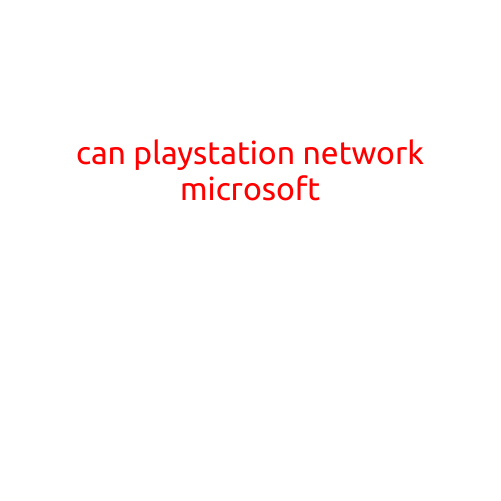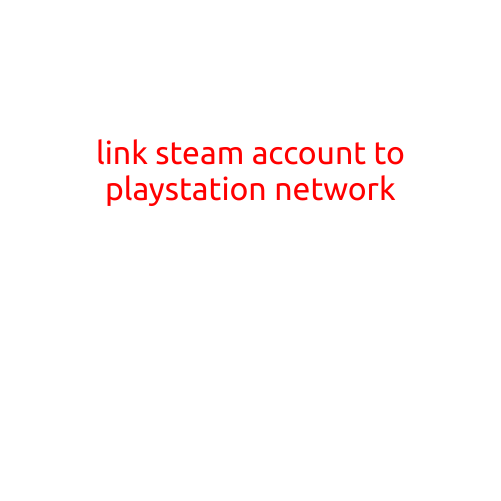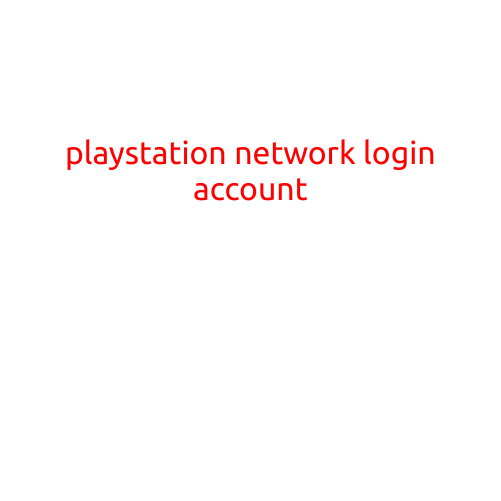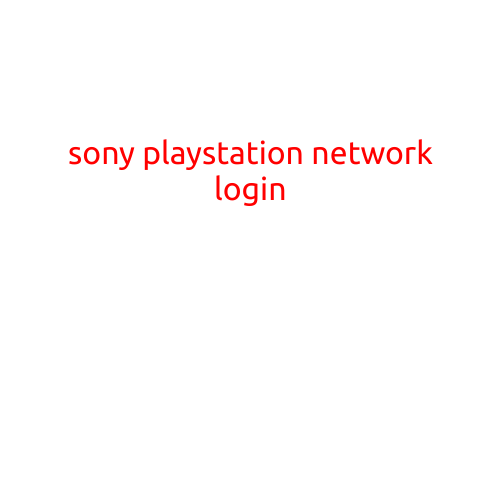
Can PlayStation Network and Microsoft Coexist in the Gaming Industry?
The gaming industry is a highly competitive space, with several major players vying for dominance. Sony and Microsoft, in particular, have been engaged in a heated battle for market share with their respective gaming consoles, the PlayStation and Xbox. However, there has been growing speculation about the possibility of Sony’s PlayStation Network (PSN) and Microsoft’s Xbox Live merging to create a single, unified platform.
In this article, we’ll explore the pros and cons of such a merger, and examine the implications it could have for the gaming industry as a whole.
Why a Merger Might Make Sense
There are several reasons why a PSN-Xbox Live merger could be beneficial:
Increased Competition: By uniting the two platforms, the merged entity would become more formidable, forcing other players in the market to raise their game. This could lead to better services, more innovative features, and more competitive pricing for consumers.
Cost Savings: Merging networks could eliminate redundant infrastructure and reduce costs, which could be invested in improving the overall gaming experience.
Convenience: One combined platform would eliminate the need for gamers to juggle multiple accounts, making it easier for them to manage their gaming lives.
Unified Gaming Ecosystem: A single, integrated platform could allow for more seamless gameplay, communication, and sharing of content between different devices and platforms.
Challenges and Concerns
While a merged PSN and Xbox Live could bring many benefits, there are also significant challenges to overcome:
Brand Identity: Both PlayStation and Xbox have strong brand identities, which could be threatened by a merger. Maintaining a consistent brand voice and loyalty across both platforms would be crucial.
Competition from Other Players: The gaming industry is highly competitive, with other players like Google Stadia, NVIDIA GeForce Now, and Amazon Lumberyard vying for market share. A merged PSN and Xbox Live would need to demonstrate a clear competitive advantage to maintain their position.
Regulatory Hurdles: A merger of this magnitude would likely require regulatory approval, which could be a complex and time-consuming process.
Gamers’ Trust and Loyalty: Gamer loyalty is notoriously fickle, and a merger could be perceived as a threat to the individual brands that have developed a strong following.
Conclusion
While a PSN-Xbox Live merger is not without its challenges, it could also bring significant benefits to the gaming industry. By combining the strengths of both platforms, the merger could create a more robust, innovative, and competitive gaming ecosystem.
However, for such a merger to succeed, both Sony and Microsoft would need to carefully navigate the complex regulatory and logistical challenges involved. Moreover, they would need to demonstrate a clear vision for the merged platform and a commitment to preserving the unique strengths and identities of both brands.
Ultimately, the success of a PSN-Xbox Live merger would depend on its ability to balance the competing interests of gamers, developers, and shareholders while creating a more competitive, innovative, and enjoyable gaming experience for all parties involved.





